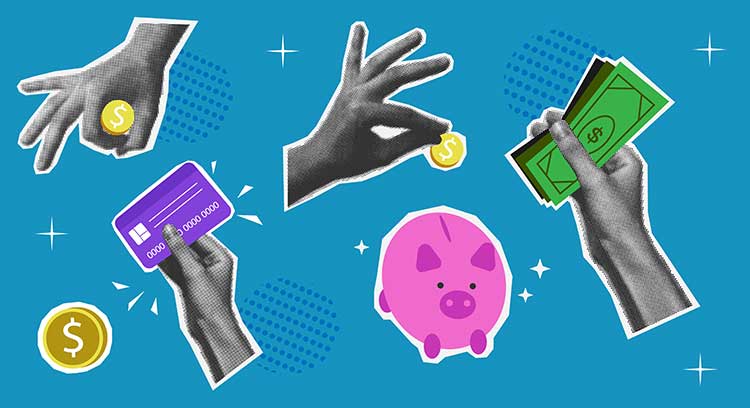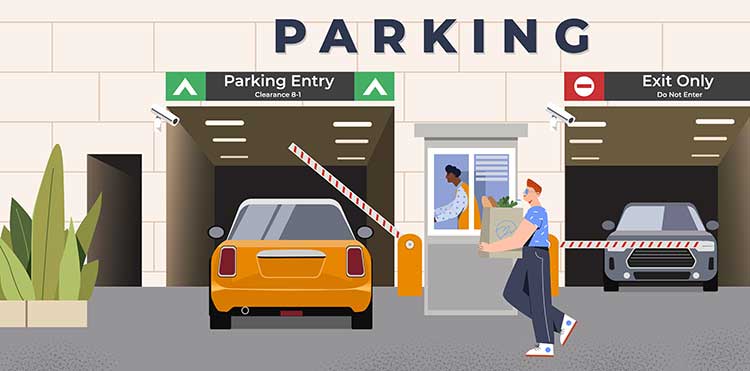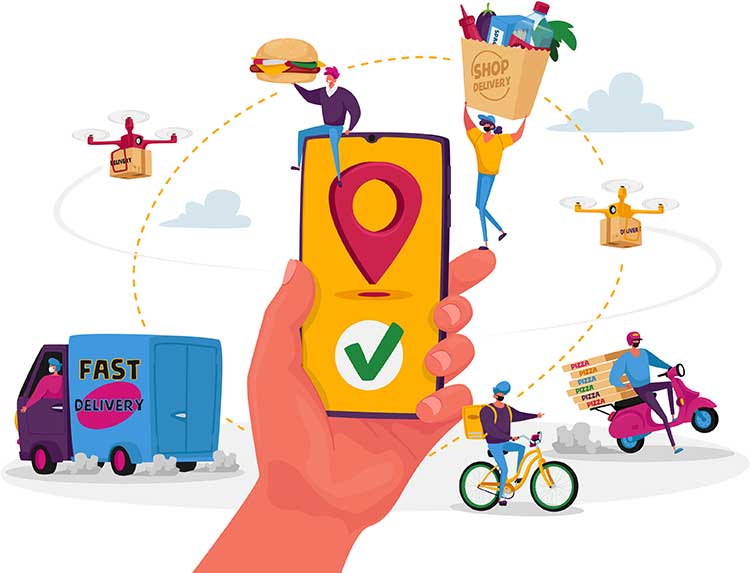Click below to listen to our Consumerpedia podcast episode on the products, services, and extras most consumers shouldn't be paying for.
Most of us often waste money on things we don’t really need, from six-dollar lattes to home theaters to designer handbags. But there’s a big difference between splurging on luxuries and throwing away money on services and items that, while marketed as useful, are bad buys. Equally wasteful: Paying for services and products that are worthwhile that you could get for free.
Consumers’ Checkbook frequently warns about products, services, and extras that aren’t worth the money, from duct cleaning to home warranties to trip protection plans. Drawing from that advice, here’s our list of 65 bad buys.
Keep in mind that we didn’t include obvious things, like those gadgets advertised on late-night TV and in scammy online ads. And remember: Our undercover shoppers always find that the biggest money waster is failing to shop around.

Air-Duct Cleaning
HVAC duct-cleaning companies pitch a solution in search of a problem. They claim their services will improve your home’s air quality and extend the life of heating and cooling equipment, but there’s little evidence duct-cleaning work yields any substantial benefits. Even if you have allergies, the little independent research on duct cleaning indicates that the work won’t improve dust levels in your home.
Amazon Prime
When Amazon launched Prime, its main benefit was free two-day shipping. But it now offers complimentary shipping for most orders, even when non-members spend $35 or more. Prime still might be worth its $139 annual fee (or $14.99/month) if you regularly watch its original TV programming (available for free to Prime members), or use its unlimited photo cloud storage, music streaming service, and Subscribe & Save discounts on household and baby products. But many Prime customers aren’t getting their $139-a-year’s worth.
Amazon’s success with Prime (in 2024 it collected more than $44 billion from membership and subscription fees) has spurred restaurants, movie theater chains, furniture retailers, drug stores, and others to roll out plans that, for an extra monthly or annual fee, provide discounts and perks. We find that, as with Prime, most paid loyalty plans are good deals only if you’re a steady customer.
ATM Fees
When you need cash in a hurry, sometimes you accept a bank’s outrageous fee to use its ATM. But for the most part, you can avoid paying it. Many banks and credit unions offer account options that reimburse customers when they incur ATM fees. And you can usually use an ATM card for purchases at grocery or drug stores and get cash back gratis.
Auto Insurance Extras
Auto insurance companies push additional coverage that pays for a rental car if your own ride needs bodywork. The problem? The modest coverage offered—typically $30 per day with a limit of $600 per claim—usually costs $30 to $70 per year for each car on your policy. The additional premiums are, over time, likely to greatly exceed any benefits you can collect.
Carefully evaluate other types of optional coverage using a similar cost-benefit approach. Many add-ons are just marketing gimmicks. If a company offers “accident forgiveness,” “vanishing deductibles,” and other benefits for no extra premium, great; but these features really aren’t worth much. Click here for more ways to save on car insurance.
Baby Products and Kids’ Toys
Many gadgets marketed to new parents—wipe warmers, Diaper Genies, swings that magically calm your wailing infant—promise to keep your home as peaceful as a yoga retreat. But seasoned baby wranglers know they are money wasters. Most parents (we included) wish we’d bought our kids 90 percent fewer toys. So many gifts were played with for a few hours and ignored forever after.
Before buying a baby doodad or kid toy, ask around about what actually gets used, or check one of a gazillion great parenting blogs.
Basic Economy Fares
A search for the lowest-priced airfare will mostly turn up basic economy tickets. Airlines love to entice with these fares, but you’ll pay extra to check a bag and select a seat, and you may not even be allowed to bring a carry-on. Worst of all, you can’t change your trip for any reason. Most travelers should avoid these bait-and-switch fares.
Bottled Water
Last year U.S. consumers paid nearly $50 billion to a bottled water industry that gobbled up millions of barrels of crude oil to manufacture and transport plastic bottles. Getting your drinking water from the tap is nearly free and doesn’t waste all that energy.
Food & Water Watch, an advocacy group created by Public Citizen, says that U.S. tap water is usually safer to drink than bottled water, since it is tested more rigorously. Plus, bottled water is more likely to be contaminated by microplastic particles.
If you need to filter your community’s tap water, and your refrigerator doesn’t have a built-in filter, you can buy a standalone model for less than $20.
Car Dealership Add-ons
Paint and fabric protection, rustproofing, VIN etching, premium wheel and tire warranties, nitrogen-filled tires, key-replacement plans, wheel locks, pin stripes, bike or ski roof racks, dent insurance, wheel packages, window tinting. These add-ons almost always have little value, are priced outrageously, and sold using aggressive, misleading pitches. Be prepared to say no. If you really want a bed liner for your truck or whatever, you can probably buy it elsewhere for a lot less.
Car Repair Warranties
Vehicle extended service contracts are incredibly profitable for auto dealers and other companies that sell them. But because many new cars are very reliable, most owners make few service claims. Even when something goes wrong, many consumers who buy these plans find their claims are often denied due to sneaky fine-print exclusions. We reviewed the lists of excluded repairs buried in several contracts and were left wondering if there was anything on the car left to cover. You’re far better off paying for repairs on your own.
Car Repairs at the Dealership
Unless the work you need is covered by a new-car warranty or manufacturer recall, use an independent shop, not a dealership. Many consumers believe dealers have access to proprietary knowledge, sophisticated diagnostic software, and better tools than independent garages. That’s often untrue. And when we use our surveys of consumers to compare quality of work at dealers and non-dealers, the non-dealers on average score better. We also find that dealerships typically charge a lot more than independents.

Certified Used Cars
To reassure used-car buyers that they aren’t purchasing a lemon, in the 1990s manufacturers began offering “certified” used cars. They’re marketed as the crème de la crème of the secondhand auto world and even come with manufacturer-backed warranties—and higher asking prices. But our review of lawsuits and complaints filed with the Better Business Bureau (BBB) turned up dozens of manufacturer-certified cars with serious problems.
Those certified labels don’t guarantee that vehicles won’t have serious hidden mechanical or structural problems. We were astonished by some of the flaws we discovered, many that should have been noticed during promised inspections. We also found certified cars that had previously been deemed complete losses by insurance companies after wrecks or floods. We even turned up a certified SUV previously owned by the government and used in crash tests.
While the warranties that come with auto manufacturers’ used-car certification programs might provide some value, these labels may not be worth the hundreds or thousands of dollars they add to price tags. Buying certified isn’t the only way to find a reliable used vehicle; the key is to get it inspected by an independent mechanic before finalizing a purchase.
Credit Card Interest and Late Fees
Get organized to avoid racking up missed- or late-payment fees. If you slip up, ask the company for a free pass; many waive penalties for customers who demonstrate they made one-time mistakes. If you can’t afford to pay a bill, inform the creditor right away. If asked, some companies will allow lower payments to avoid delinquencies.
Try to pay your credit card balance in full each month to avoid interest charges. The average interest rate on unpaid credit card balances is nearly 23 percent, which means those making minimum payments each month on a $10,000 balance won’t pay it off for 27 years—and the final amount paid would be $24,423.
Credit Reports, Scores, and Monitoring
Carefully watch your credit reports and financial accounts for signs of fraud, but don’t pay a company to do it. Identity-theft monitoring services cost $10 to $30 a month, but you can easily do it yourself for nothing.
You can request a free credit report from each of the three credit bureaus—Equifax, Experian, and TransUnion. Request yours at AnnualCreditReport.com.
The credit bureaus’ free reports won’t include your credit scores. But you don’t need to pay extra to get yours. Many financial institutions have set up access so their customers can monitor their FICO scores for free; check the websites of your bank, credit union, and credit card companies for how to enroll.
Debt-Relief Services
Many for-profit debt-relief outfits prey on consumers by promising solutions they never deliver, charging high fees or even stealing their money. Their customers often end up in worse financial shape than before they asked for help.
No company can magically eliminate your debt or quickly repair your credit scores. On your own, you can do most of what even the legitimate services can accomplish. If you need help, work with a trained credit counselor at a nonprofit counseling agency who can arrange a realistic repayment plan—and teach you the skills needed for a successful financial future. To find one, visit NFCC.org or call 888-814-5943.
Dental Treatments You Don’t Need
Be suspicious if a new dentist recommends far more treatment than your previous one—for instance, if suddenly many fillings need to be replaced, several teeth need to be crowned, or your gums need extensive surgery. We receive frequent complaints about this in our surveys of patients.
To help you decide on a treatment, your dentist should fully describe the condition of your mouth and all treatment options, including those that might cost less. If a dentist recommends extensive treatment, get a second opinion.

Diamonds
Yes, they’re still a girl’s best friend, but they’re also overhyped and overpriced: Because only a handful of companies own most of the supply—and giant mining companies control two-thirds of its global distribution—mined-diamond prices remain artificially high.
There are several better buys. You could go for lab-grown diamonds, which are surging in popularity. Lab-grown diamonds are chemically and physically identical to mined ones but cost 20 to 40 percent less (and aren’t dug up from environmentally destructive mines or sold to fund civil wars and violent regimes). Sapphires, rubies, and other gems offer similar dazzle at significantly lower prices. Before buying anything, shop around to make sure you're not overpaying.
DNA Ancestry Reports
Outfits like Ancestry.com, 23andMe, and others analyze your genes for various reasons, from testing for medical conditions to romantic matchmaking. But most consumers buy them for estimates of their ancestry or ethnicity.
While genetic science continues to make important discoveries and invent breakthrough medical treatments, the breakthroughs DNA ancestry companies make are largely marketing ones. Many companies overpromise on what they can deliver; despite their ads, at best they can provide very general and imprecise ancestry estimates, especially when they try to assign users to regional ethnic groups.
Plus, most DNA testing outfits don’t seem transparent enough about what else they do now (or will do in the future) with all the genetic info they’re scooping up.
In October 2023, hackers stole info of about 7 million of 23andMe’s customers. Then, in 2025, the company announced it was filing for bankruptcy. 23andMe’s terms and conditions state it can change its privacy policy at any time. If the company is sold, data collected by 23andMe likely will get transferred to new owners. Will they protect these sensitve data? Use them for new purposes?
We have serious concerns about how carefully all these companies store data and with whom they might share it.
Drugs—Name-Brand
Always ask your doctor whether less-costly generic brands can be subbed for name-brand drugs.
Dry Cleaning
If the label says “Dry clean only,” get thee to a professional cleaner; our ratings of area shops will help you find a good one. But if it only says “Dry clean,” it’s just a suggestion; and “hand wash” and other instructions mean that—if you’re careful—you can do your own laundry. Materials that spot or shrink (silk, acetate, velvet, taffeta, some wool) when washed with water should go to the pros. But you usually can hand wash or machine wash cashmere, linen, cotton, and polyester. Test for colorfastness first by wetting a cotton swab with mild soap and dabbing it on a hidden spot. If you see color on the swab, take the item to the cleaners.
E-Books
Almost all libraries now buy e-book licenses from publishers and make books available for download by patrons, formatted for device type, through services such as OverDrive.com and the popular Libby app. (Caveat: You’ll face long waitlists for bestsellers and other popular titles.)
Other ways to e-read for free: Books in the public domain—which usually means they were published more than 100 years ago and are no longer protected by copyright—can be downloaded from several online resources, including OpenLibrary.org and Project Gutenberg. Amazon, Barnes & Noble, Google Books, and Apple Books showcase frequently changing lists of popular books for free download.

Energy Inefficient Appliances and HVAC
Because more energy efficient furnaces and major appliances cost more, many homeowners replace broken units with minimally efficient models. That’s often shortsighted since the resulting energy savings from buying an efficient model will quickly pay off its extra cost. Often, utility rebates and tax credits for opting for energy savings provide even faster payback. Click here for more HVAC buying advice.
Here at Checkbook.org, we detail several changes you can make around your home that will save energy. Many such tasks cost nothing or nearly nothing; others require some upfront spending but quickly pay for themselves with lower utility bills.
Extended Product Warranties, AppleCare+, Etc.
Purchase protection. Service contracts. AppleCare+. Whatever retailers call them, these policies are cash cows for the outfits that hawk them and the insurance companies that administer them and honor infrequent claims. But we find they are usually bad deals for you.
For example, buy an iPhone 16 and for no extra cost you get a one-year limited manufacturer’s warranty covering repairs and 90 days of free tech support. Pay an extra $13.99/month (or $140/year) for AppleCare+ and you’ll get coverage for accidental damage, theft, and loss.
The problem? Even after those premiums, you’ll still have to pay extra if you run into trouble. Cracked screen? There’s a $29 deductible to fix it under AppleCare+. You’ll pay $99 if your clumsiness or a product defect necessitates a different type of fix. If you lose your phone or it’s stolen the deductible is $149 per occurrence, and you’re limited to two losses per year.
So, to insure your phone for damage worse than an easily repaired cracked screen, you’ll spend $239 to $267. Or you’ll pay $289 to $317 to insure for loss or theft. Those are significant out-of-pocket expenses to cover even an expensive $1,000+ phone.
The extended warranties and service contracts pushed by retailers for other electronics, computers, and major appliances are even worse: They typically provide sketchy coverage and, when something does go wrong, tend to deny claims.
Even if you want an extended warranty, you can usually get it for free. Many credit cards automatically provide them for free when you use their cards to purchase products that have manufacturer’s warranties. Costco also offers free warranty extensions. That so many companies give away extended warranties is an obvious sign that they’re not worth paying for.
Exterminators
If you have a pest problem, before you hire an exterminator learn what you can do yourself. Unless your home is infested with termites or bedbugs, you can solve most creepy-crawly invasions yourself. If you do hire help, consult our ratings of area services, and avoid long-term contracts. A single treatment performed properly will rid you of most household vermin. Suspect termites or bedbugs? Get several inspections and proposals.
Eyewear—Designer Frames
The U.S. eyewear market is dominated by Italian manufacturer EssilorLuxottica. It owns several brands outright, including Ray-Ban and Persol, and makes other big brands (Armani, Burberry, Chanel, Coach, Dolce & Gabbana, Michael Kors, Oakley, Polo Ralph Lauren, Prada, Tiffany, Versace, and more) via licensing agreements.
EssilorLuxottica also owns or controls multiple eyewear retailers, including For Eyes, LensCrafters, Pearle Vision, Sunglass Hut, and the optical departments at Target. It is also the world’s largest maker of prescription eyeglass lenses and produces contact lenses. In recent years, the behemoth has even bought up a major vision insurance company.
With one corporation controlling a large share of the manufacture and distribution of eyeglass frames and lenses, it’s tricky to figure out whether you’re getting a good deal. EssilorLuxottica’s designer-label frames cost from $300 to several thousand bucks per pair. It’s hard to justify paying such hefty prices when you can buy a nearly identical—and far less expensive—model that possibly was made in the same facility, and the cost to manufacture both models was probably less than $5. Click here for more advice on buying eyewear and contact lenses.

Fast Fashion
It can seem like a bargain to score a $15 dress or pick up a T-shirt for less than the price of a cheeseburger. But disposable fast fashion, from cheap plastic shoes to scratchy viscose shirts, is a bad deal—and its wastefulness harms the environment. Your new Shein sweatshirt may pill (or fall apart entirely) after a handful of washes, and inexpensive footwear can lead to blisters or worse. It’s better to purchase a higher-quality wardrobe (all-wool sweaters, leather loafers) and pay to maintain it, with help from our ratings of dry cleaners, tailors, and shoe repair shops.
If higher-quality stuff is out of your budget, used-clothing retailers, resale apps, and thrift stores provide good prices on nicer things. And if you must have a new frock/sport coat/bag for a wedding or high school reunion, consider renting it from a website like Rent the Runway or borrowing something from a well-dressed pal.
Fitness Equipment Purchased New
Many New Year’s resolvers buy treadmills, stationary bikes, rowing machines, elliptical trainers, and cross-country ski simulators, but then (often quickly!) end up back on the couch bingeing Netflix.
Their sloth is your reward, with many sofa surfers happy to get big treadmills and such out of their homes. Search for gently used, free equipment on Craigslist, Buy Nothing groups, Freecycle.org, Facebook Marketplace, and other resources.
Furniture and Carpet Protection Plans
In the past, stores offered to apply a stain-resistant coating. Now those coatings are applied during the manufacturing process. What the stores offer is skimpy insurance coverage at high prices. Don’t buy it.
Gasoline—High Octane
If your car’s owner’s manual specifies a high-octane formulation, then use it. Otherwise, fill ’er up with regular—your engine won’t run any differently.
Gifts in General
All those corny coffee mugs, fridge magnets, and T-shirts are fun—for about 10 minutes. After that most get pitched.
Since most people already have too much stuff, instead give them gift cards or experiential presents (yoga passes, cooking classes, concert tickets, museum memberships). Services you can provide—a coupon for babysitting or a homemade meal—are also lovely. Make a gift card or coupon feel more special by wrapping it beautifully and including a small practical item to go with it, such as tennis balls paired with a certificate for lessons.

Groceries You Don’t Eat
Yes, you can save money by buying in bulk or by stocking up during great sales—but not if you waste a bunch of food due to spoilage. Smart ways to save at the supermarket: Plan your meals. Make a shopping list and stick to it, so you buy only what you need. Shop specials, but stock up only on nonperishables. Check expiration dates. Keep track of what you pitch so you’ll buy less of it. Don’t shop while hungry. Avoid impulse purchases. Use per-unit pricing to identify which products are the best values. Instead of name brands, try store brands, which usually cost five to 10 percent less. Finally, use Consumers’ Checkbook’s ratings of grocery stores for quality and price to determine whether you can save by switching stores.
Gym Memberships
The fitness industry thrives on good intentions. Most people who sign up for gym memberships stop using them after only a few months. Before joining, think realistically about what activities you are likely to participate in and how often you’ll use the facilities. Weigh your options: Can you work out for free or less expensively some other way by exercising at home, running, biking, joining a sports team, or using a government-run rec center or YMCA? Click here for more advice on choosing a gym or fitness center, plus ratings of local workout spots.
Many health insurers incentivize fitness by offering deals on gym memberships. Some even reimburse gym fees if you go frequently. Check your plan’s website to see what you can get with your contract. If you’re with a Medicare Advantage plan, the SilverSneakers and Silver&Fit programs have free or very-low-cost memberships at many gyms.
Home Repair Price Gouging
Get at least four or five bids from reputable contractors before signing on for any home repairs or improvement work. Our researchers have been collecting quotes from more than a dozen types of home contractors for 50 years. They have found that some companies charge two or even three times more than others for the exact same work. But you don’t have to pay more to get high-quality workmanship: The best contractors are just as likely to quote low prices as poorly rated ones.
Especially be wary of companies that advertise heavily and/or offer 24/7 service. They tend to charge exorbitantly high prices. A favorite ploy of such sketchy contractors is to quote an inflated price and then offer a steep discount that’s available only if you sign right away, often under the guise of having a nearby crew ready to start. If you hesitate, a “supervisor” typically follows up with an even lower price. Usually, even the lower prices offered by these outfits are far higher than those charged by reputable contractors.
Never deal with companies that send workers door to door seeking work. Feeling rushed or pressured? It’s a massive red flag.

Home Security Systems
Because most burglars enter homes by simply opening unlocked doors or windows—or pushing and kicking locked ones until they open—we find that even the most basic protective measures will improve your security. It’s more effective to secure all doors with good deadbolt locks; lock all windows accessible from the outside; set up lighting systems that deter burglars; and improve your own safety habits.
Still want an alarm? Now, instead of paying a home security firm thousands of dollars to install a system and then more than $500 per year to monitor it, you can set up your own rudimentary protections for less than $200 and monitor it yourself using a smartphone for free.
Home Warranties
Home warranty companies run scads of ads promising to save you thousands of dollars when your refrigerator, furnace, plumbing, or whatever breaks down. But these warranties are terrible deals for most homeowners.
Consumer agencies receive thousands of complaints about home warranty companies. Even after paying $400 to more than $1,000 for the coverage, consumers will find these contracts are typically filled with fine-print exclusions that stick them with much of the costs for product repairs or replacements. The vast majority of plan buyers will pay far more in premiums and service fees than they’ll get back for covered repairs.
Even when repairs are covered, you don’t get to decide who does the work. We find that the best repair services overwhelmingly disdain these plans and won’t work for home warranty companies.
Homeowners Insurance Gotchas
It’s crucial to obtain an accurate estimate of your home’s replacement cost to determine how much “dwelling” insurance coverage you need. The replacement value isn’t the same as market value; the latter includes the value of the land and your home’s foundation—two expensive components of your property that don’t need to be insured against wind, fire, etc. Replacement value is an estimate of what it would cost to rebuild your house completely on your land.
While many U.S. homes are underinsured, others are overinsured, because disreputable agents tell their clients to buy dwelling coverage equal to their homes’ market value.
Another big source of insurance-spending waste? Many homeowners overspend by sticking with the same insurance company year after year instead of shopping around for better rates. Most homeowners will save more than $500 each year by switching to a lower-priced company; some will save $1,500 or more.

Hotel Parking
A bargain room rate becomes less awesome if you have to pay $60 a day to park in the hotel garage. Fortunately, several websites and apps—including BestParking.com and SpotHero.com—can help you find a cheaper spot by providing pricing for garages and parking lots in major metro areas. Simply enter an address or select a neighborhood, indicate your arrival and departure times, and these sites map out the total prices for parking facilities in the vicinity. These nearby spots usually cost less than half of what hotels charge.
Hotels’ Early- and Late-Check-in Fees
You can often have fees for early or late check-ins waived simply by asking nicely. If the hotel isn’t expecting a full house, it is usually happy to accommodate. Loyalty program members of some chains get free late checkouts as a perk.
If there are no extra rooms at the inn, most places will store your bags (tip the bellhop) while you sightsee or grab a bite before check-in or after checkout.
Want to rest up before a red-eye flight? Although they don’t advertise it, many hotels allow guests to pay for a half-night’s stay, letting you hang on to your room until evening for less money.
HVAC Maintenance Contracts
Some heating and AC companies urge their customers to sign up for maintenance plans, arguing that regular visits help avoid untimely breakdowns during peak-usage months. But many actually push these contracts to keep their technicians busy during otherwise slow months—and to maintain a steady flow of revenue.
Use our ratings to identify a reputable HVAC contractor, and ask it how often your equipment should be serviced. If you need maintenance visits every year—if, say, you have a large house or don’t want to perform even the simplest tasks, like changing filters—a maintenance contract might make sense. But most people won’t benefit much from these plans, and we get many complaints from consumers who buy service contracts and find that technicians discover something to repair on every service visit—at extra cost. Some contractors seem to use service contracts as twice-a-year opportunities to squeeze customers for unnecessary repairs.
Interior Designers
The cost of hiring a fully trained designer to redo a living room is typically more than $20,000. While many overwhelmed consumers are happy to spend this for help planning their furniture purchases, paint colors, and other décor, there are less expensive options.
Store-based designers sometimes offer limited services, from drawing floor plans to advising on color. Design services at many furniture stores are free; at others, you pay a small fee, refundable if purchases exceed a certain amount. At some stores, designers charge hourly rates or flat fees for consultations.
Some pros now also work via e-design portals, including Decorilla.com, Havenly.com, and Spacejoy.com. Most work on a by-room basis, with costs ranging from $100 a room (for a simple plan with renderings and one-on-one assistance from Havenly) to $999 for Gold service from Decorilla (plans from two designers with 10-plus years of experience each).

International Cell Phone Service
Travel outside the U.S., and you usually leave behind the cellular networks maintained by AT&T, T-Mobile, and Verizon. Because the major American mobile companies have agreements with foreign networks, your phone will automatically switch to them when you arrive. But with most U.S. mobile companies, you’ll pay extra to “roam” on non-U.S. networks, and some providers—especially Verizon and Xfinity Mobile—charge big fees for talking, texting, and data while abroad. Customers of some resellers and prepaid plans can’t connect to foreign cellular networks at all.
Fortunately, international travelers have several low-cost options for staying connected. If you stick with your U.S. carrier, check what it’ll cost in advance, especially if you’re a Verizon or Xfinity Mobile customer, which by default charge very expensive pay-as-you-go rates if you don’t opt into its day pass, which costs $12/day with Verizon and $10/day with Xfinity.
Another way to save is to switch your cellular service to a foreign provider when you arrive. You can do this by buying and installing onto your phone a different SIM [Subscriber Identity Module], which is the device that authorizes access to cellular networks.
You can avoid all international roaming fees by keeping your phone in airplane mode and sticking with whatever free Wi-Fi you can find, or by renting a Wi-Fi pod. For families that mostly stick together, sharing a pod could be a big money saver. For example, instead of Verizon’s $12/day/person fee, the fam pays $8 to $16 total per day to connect to a shared Wi-Fi pod.
Internet Modem and Router Rental
Some cable companies and internet providers charge $10-$15/month to rent their modems and wireless routers. You can buy your own for less than $100; the savings will quickly pay back your investment.
Investment Brokerage and Consultation Fees
Many investors pay hundreds or even thousands of dollars each year for financial advice, brokerage fees, account service fees, and to fund managers. Are they getting their money’s worth? Are the fees justified by better returns? Most of us will do just as well, or even better, by managing our own money and picking a diverse selection of stocks and mutual funds, or exchange-traded funds (ETFs) that scrape very little for management fees. And many online brokerages now charge no transaction fees for most stock and mutual fund trades.
Junk Haulers
There are tons of free ways to get rid of unwanted belongings, including donating them to charities—some will even pick up. Resources like Buy Nothing groups and Freecycle.org match you with people who think your trash is a treasure. If you need to unload an entire household’s worth of stuff, working with an estate sale company will generate some revenue for you.
Lengthy Car Loans
Over the last 10 years, as vehicle prices rose, dealers pushed buyers into signing up for lengthier auto loan terms to reduce their monthly payments. The market for longer-term financing (six years or more) has grown dramatically. Most manufacturers, banks, and credit unions offer loans lasting seven or even eight years.
In the third quarter of 2024, the average new-car buyer financed about $41,000 and took out a loan of 68 months, according to Experian. Even that is too long. First, you’ll pay far more interest than you would on a shorter loan. And while a longer loan reduces your monthly payments, it won’t slow down the rate of depreciation for your new wheels, so you end up being “upside-down”—owing more on the vehicle than it’s worth—for longer. If your car is totaled or stolen, your insurance company won’t reimburse you for what you still owe.
If you can’t afford payments for a car loan lasting less than five years, then find a less expensive vehicle. The best way to do this is to buy used, which lets the previous owner eat most of the vehicle’s depreciation. And shop for the best loan rates: Total payments for a 48-month $40,000 loan, for example, are $2,657 lower with a five-percent interest rate than an eight-percent rate.

Medical Alert Devices
Our researchers tested several models and found that most medical alert device makers’ products delayed emergency response. The units we tested also often provided imprecise location data to companies’ call centers, creating confusion and further delays when they contacted 911 centers.
Wearable devices like Apple Watch are good options for those who want a panic button at hand that can actually get them help quickly.
Medical Bill Errors
Double-check your medical bills and statements from your health insurance plan to be sure you’re not overpaying for preventive care such as annual physicals, well-woman visits, mammograms, flu shots, and colonoscopies. Usually, out-of-pocket costs for these types of services are lower than other types of treatment. Receive a surprise sky-high medical bill? Contact the medical provider and your insurer to make sure the amount you owe was calculated correctly.
Medical Tests and Procedures
No, not all of them. But it’s clear that doctors too often prescribe—sometimes at patients’ requests—unnecessary treatments.
Estimates vary, but many studies of medical care delivered in the U.S. conclude that between $250 billion and more than $1 trillion is wasted to pay for unnecessary tests, procedures, doctor visits, hospital stays, and other services that may not actually improve patient health—and in some cases increase the risk of further harm.
If your doctor prescribes a test, ask if it’s duplicating one you had recently. And find out whether the need for the treatment is supported by evidence. Consider getting a second opinion before undergoing diagnostic procedures, especially invasive ones.
Membership Fees
Digital subscription services are super-convenient. That small monthly fee to stream video, listen to music or audiobooks, or store your stuff in the cloud seems like a good deal when you sign up, especially if there’s a free trial. But these little fees add up: The average American now spends more than $900 a year on digital subscriptions. Add in regular payments for gym memberships, newspaper subscriptions, and weekly meal kits, and you may be straining your budget.
Periodically sit down and follow the money to spot subscriptions you don’t use; then cancel them.
Mortgage Insurance
If you don’t have 20 percent equity, your lender likely will force you to buy costly mortgage insurance. But you don’t have to carry it forever. Once you have paid down your mortgage balance to 80 percent of your home’s appraised value, you can ask your lender to cancel the insurance; and by law it must eliminate it once a mortgage balance represents less than 78 percent of a home’s value. (Note that you can’t cancel mortgage insurance on an FHA loan; if you have one of those, you’ll have to refinance your note to eliminate it.)
Movie Rentals
Most films available to rent on Amazon Prime, Apple, and others cost $5 or $6. But we often find that lesser-known streaming services offer thousands of free flicks. Before renting, check websites like JustWatch.com to see where you might watch it gratis.
Nutritional Supplements
Each year, Americans spend more than $50 billion on supplements. But consumer advocates caution that supplements are often deceptively marketed, and that a lack of government oversight means it’s difficult to ensure their quality, safety, and effectiveness. Mounting clinical research indicates that many vitamins and nutritional supplements provide few, if any, health benefits—and some can do more harm than good.
Most of us get enough vitamins by eating a healthy balanced diet. Some people should take specific vitamins or supplements—for example, many pregnant women need folic acid, and some adults require extra vitamin D. But talk to your doctor or perform research using reputable websites (MayoClinic.org has good summaries) before gobbling pills and powders.
Paying Full Price for Just About Anything
While our research proves that most sales prices are fake discounts, you should still seek out the best deals. Before making a major (or, really, any) purchase, set a budget and stick to it, compare items and services to get the best quality, compare prices, and try tricks like online promo codes (or ask for a discount if you’re at a brick-and-mortar store). Other ways to obtain discounts include cash-back shopping portals and signing up for newsletters (or following stores on social media). Oh, and pay with a credit card to protect your purchase—if you’re dissatisfied, you can request a chargeback from your credit card company.
Once you’ve bought something, don’t snooze on price adjustments. Keep an eye on the store’s prices for a few weeks. If you ask, many stores will refund the difference between what you paid and any new lower price. Most price-adjustment periods range between seven and 30 days.
Pet Insurance
Considering pet health insurance? First determine what you would do if Fluffy or Fido required expensive medical care. While many pet owners will pay anything to save their furry kids, others won’t. If you are in the latter group, pet insurance is not for you. If you belong to the pay-any-price group, consider it if huge vet bills would severely strain your finances. But keep in mind that in terms of total out-of-pocket costs over the life of your pet, most owners will do better sans insurance. While companies promise affordable coverage, we found that many increase premiums dramatically as pets get older and are more likely to need healthcare.
Picture Framing
You can tackle most frame-up jobs on your own. If your pieces are standard-sized, you can buy inexpensive premade frames. If you have odd-sized art or want customized frames and mats, several websites allow you to enter measurements and shop from hundreds of frames. The store ships your products and you assemble everything. In our experience, this is a relatively simple (but not totally goof-proof) task.
Rental Car Insurance
When picking up your rental car, you must face THE QUESTIONS about insurance coverage. We find that, for most drivers, the plans the agent “strongly recommends” represent unnecessary expenses. Most of us already have sufficient coverage from a combination of our personal auto insurance policies and the credit cards we use to pay for the rentals. Plus, you receive liability coverage automatically from the rental car companies themselves, as required by the state or country you’re visiting.
If you don’t own a car (and lack auto insurance), or you want to protect against risks not covered by your auto insurance or credit card companies (loss of use fees is a biggie), consider buying your own standalone policy, rather than paying for the expensive plan offered by the rental company. If you’re an American Express cardholder, for example, you can pay a flat $25 fee and get good primary rental car insurance coverage, which means that, unlike the plans offered by the rental companies, if there’s a problem no claim is filed with your regular auto insurer.

Restaurant Ordering Services
Ordering apps like DoorDash, Grubhub, and Uber Eats not only charge you fees to ferry food to your place, but most charge restaurants steep commissions and fees, typically totaling 20 percent of the bill, and sometimes 40 percent or more. These fees force many restaurants to raise their menu prices paid by you and other eaters. Drive or walk to pick up your tacos or sushi yourself.
Self-Storage Rentals
For proof that Americans have too much darn stuff, we present the burgeoning self-storage industry, which rakes in more than $44 billion a year. Unless you’re in between homes or need a place to stash your things during renovations, downsize your possessions rather than blow big-time money on storage. If you do need storage, shop around to make sure you don’t overspend: Our undercover shoppers found big price differences among local spots.
Tax Prep Help
If you have complicated investments, are self-employed, or own a business, it often makes sense to pay a CPA for help. But most of us can do our own taxes. Tax-prep software is now remarkably user-friendly. Member of the military, a veteran, or have an annual adjusted gross income below about $70,000? If you have a straightforward return, you can use several companies’ software and e-file your federal return for free. Several studies have found that many of the “experts” employed by commercial tax-prep companies aren’t very knowledgeable anyhow.
Tech Support
At the end of your rope trying to program or hook up a new TV? Can’t get your new tablet to find your Wi-Fi network? Can’t configure that new laptop? Some stores, including Costco, offer free tech support. Or ask a techy friend for aid in exchange for lunch.
Tire Protection Plans
Most tire sellers offer tire protection plans, which cover damage to tires due to hazards during normal driving. If you get a flat caused by a nail, glass, or other road debris, the company promises to repair or, if necessary, replace the tire. But if you get a flat from accidentally running over a curb or other driver-caused errors, you’re out of luck. And these plans never pay for failure from worn tread; that type of problem is (poorly) covered under the manufacturer’s warranty.
Some stores, including Costco, provide this type of coverage for free; Costco will even replace punctured tires it can’t fix. But many charge an extra $50 to $200 to cover four tires.
Unless it’s free, these add-ons aren’t good deals. Even if a nail flattens your tire, a shop will charge only $25 to $50 to plug and repair it. Don’t pay $50, $100, or more to protect yourself against having to pay $25 or so for each tire repair you may never need.
Title Monitoring Services
Title fraud is not a common problem—and definitely not a nationwide crime spree “exploding across America,” as the commercials claim. In some ads, infomercials, and social media posts, Home Title Lock features “victims” who share compelling title-theft horror stories. An investigation by ABC News found two people appearing in these ads lied and were never affected by title fraud. If title fraud is widespread, as Home Title Lock warns, it should have been easy for the company to find real victims.
These companies do not lock anything, and cannot stop criminals from accessing your deed (which is a public document) or prevent title fraud. Instead, they offer only monitoring services, similar to credit monitoring, that alert customers about any changes to deeds they track.
You can check your title for free, in person or online in most places, by contacting the government office that handles land records in your jurisdiction—typically a recorder’s or clerk’s office. Look for any changes that don’t seem right, including any liens that may have been placed on your property.
Trip Protection Plans
The trip protection policies pushed by airlines, travel-booking sites, cruise lines, and their lot are (often incredibly) bad buys for most travelers. Wade into the fine print and you’ll find these plans provide pretty thin coverage—typical exclusions include hurricanes, earthquakes, civil unrest, illnesses due to preexisting medical conditions, and epidemics. Most travelers don’t risk much skipping it.
On the other hand, it makes sense for some international travelers to shop around for medical insurance policies, especially if they are Medicare beneficiaries (no coverage for foreign healthcare costs) or visiting regions that lack comprehensive medical facilities—and their health insurance plans won’t cover the high price of medical evacuation. Click here for travel insurance dos and don’ts.
Upgraded Tech Speeds and Capabilities
Internet and cell service providers push their customers to upgrade to “better” plans that offer faster speeds and higher data-download allowances. But before you shell out for 1,000 Mbps download speeds, unlimited cell data, and the like, consider whether you really need it. Streaming Netflix or attending Zoom meetings doesn’t require much bandwidth. And although each year our smartphones gobble up more and more data, most of us still can get away with monthly allowances of 20GB or less, rather than a pricey unlimited plan.
When shopping for new gadgets, consider whether you really should pay a lot more for the latest thing. Plopping down thousands of dollars for an 8K Ultra HD TV model to watch Cheers reruns doesn’t make sense, especially when “older” models from a few years ago cost 90 percent less yet deliver the same picture quality. And although the latest smartphone models are touted as the best thing ever, in reality Apple, Samsung, and others now roll out small improvements; upgrading every few years is usually a big waste of money.
Water and Gas Line Coverage
Homeowners across the U.S. often receive ominous official-looking letters bearing utility company logos warning they are responsible for repairs to water, sewer, and gas lines on their property. The clincher: If there are problems, the homeowner could be on the hook for thousands in repairs.
Although these mailings seem to come from their utilities, they’re really pitches from third-party companies that have struck sketchy partnership agreements with utilities allowing them to use their names and logos to hawk lousy warranty coverage. The ploys work: Millions of homeowners have purchased these plans.
But our research found that few homeowners ever have to deal with expensive utility line repairs or replacements. These warranties are bad deals.
Zillions from Overshopping
An estimated 20 million Americans are compulsive shoppers, and 2.6 percent meet the diagnostic criteria for a hoarding disorder. More than ever, companies are using an arsenal of marketing tricks to manipulate consumers into spending now and spending more. We’ve covered this phenomenon extensively at Checkbook.org, but it bears repeating: Purchasing fewer and finer clothes, household goods, and services is better for both the planet and your pocketbook.


